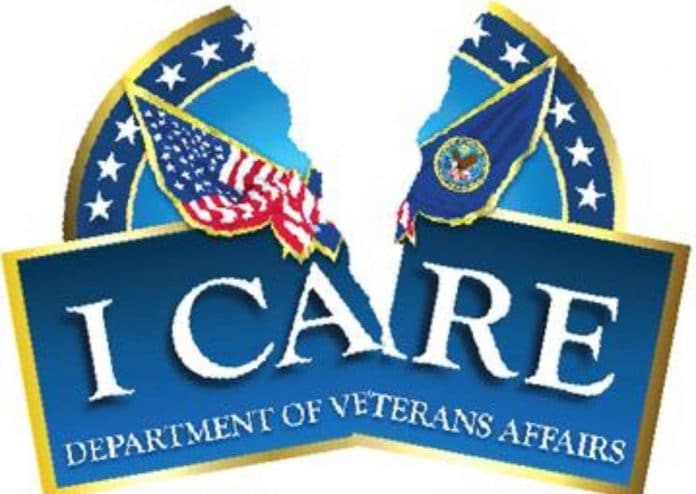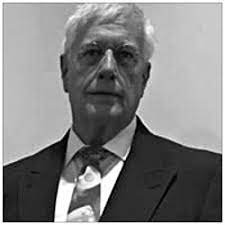
VA employees in one Southeast district say a toxic culture of retaliation has undermined veterans’ care and worker morale. There is growing skepticism among whistleblowers the VA can police itself.
MARY LOUISE KELLY, HOST:
Employees at the Department of Veterans Affairs rely on its whistleblower protection office to investigate reports of mismanagement and abuse and fraud. This week, serious concerns about how that office handles complaints became public in a scathing letter written by the VA’s inspector general. Nearly 40 percent of all the whistleblower retaliation complaints across the federal government are from the VA – 40 percent. So to understand what’s going on, NPR’s Eric Westervelt investigated one VA district. It includes Alabama and Georgia. He uncovered an entrenched culture of often vicious retaliation where employees who raise concerns are silenced, isolated or removed. Here’s the first of his two reports.
ERIC WESTERVELT, BYLINE: Retired Colonel Cynthia Chavez (ph) has more than 40 years of combined Army and VA service, and she has outstanding performance reviews across both institutions. In June of 2014, she was hired to lead the VA’s Food and Nutrition Service in central Alabama. She soon found that both the Montgomery and Tuskegee hospital kitchens, especially Tuskegee’s, had some serious problems.
CYNTHIA CHAVEZ: I hadn’t been there two weeks when an employee came in to tell me about illegal activities in the kitchen. And he stopped right there and he said, but if you’re not going to do anything about it, I’m going to keep my mouth shut, otherwise I become the target.
WESTERVELT: Some employees, she says, routinely came in late and left early or didn’t show up at all. One, she says, would openly drink on the job. But that wasn’t the worst of it. Colonel Chavez was told by multiple co-workers that a longtime employee was running a side catering business out of the VA kitchen in Tuskegee.
CHAVEZ: Well, I was shocked. All the food that’s bought is from appropriated funds. Myself as a 30-year veteran, I couldn’t even eat there. It was just for the veterans that were being treated in the hospital.
WESTERVELT: Stealing food from veterans?
CHAVEZ: She was selling it through her catering business. And so when I did my due diligence, sure enough she couldn’t answer questions about how she had catered this event and yet she was on duty.
WESTERVELT: It was hard to tell just how much food had been stolen. Several co-workers told Chavez it’d been going on for years. One Valentine’s Day, she says, a case of steaks and cheesecakes meant for a special hospital vet meal went missing. Emails and other documents show that Colonel Chavez moved to suspend the woman and investigate. Soon after, she got her first of many anonymous threats – a letter slipped under her Tuskegee office door. Here’s Chavez reading part of one.
CHAVEZ: (Reading) This isn’t the Army where you had connections. This is the VA and we will get you.
WESTERVELT: Those were an anonymous threats, but formal complaints from the local union soon followed. The union voted no confidence in Chavez and her top boss, a career VA employee named Leslie Wiggins, soon told Chavez in no uncertain terms to back off. In fact, Wiggins eventually took charge of all discipline of kitchen workers there, citing what she called Colonel Chavez’s, quote, “inappropriate disciplinary actions.”
CHAVEZ: I am trying to hold employees accountable, and all I keep getting is pushback back through anonymous letters and even when HR would say, no, she’s justified in what she’s trying to do, they would not let me take any discipline against anything that the employees were doing.
WESTERVELT: Chavez was soon investigated for abuse of authority. She was reassigned and told not to talk with any of her employees or access any paperwork or files. She notified three federal offices that she was the target of whistleblower retaliation. So far, nothing has come of it. This past January, she was forced to resign or her boss said in an email you’ll be fired. The woman who was allegedly stealing food from veterans – she was allowed to retire with full benefits. There’s no indication she was ever disciplined. But here’s the thing – Chavez’s case is hardly an isolated one for Central Alabama’s VA. In VA district, or VISN, 7, retaliation is part of a well-documented pattern. Interviews with nearly 30 current and ex staffers backed up by emails, legal documents and data from the VA paint a picture of a toxic culture of intimidation and reprisals, a place where employees are routinely bullied, belittled and harassed if they raise any serious allegations.
According to data from the VA office set up to protect whistleblowers, VISN 7 has more whistleblower retaliation complaints per veteran served than any of the VA’s 20 other districts. They include allegations of retaliation, abuse of authority, gross mismanagement, gross waste of funds and other serious charges. But so far, no recent senior leader of VISN 7 has been held to account for what one current manager in Alabama who requested anonymity out of fear for her job calls a travesty of abusive leadership that’s akin to a mafia culture and what she says puts the care of veterans at risk.
JULIAN KASSNER: Toxic dysfunction and out of control is an understatement.
WESTERVELT: That’s Dr. Julian Kassner, a Navy trained physician and former lieutenant commander. Central Alabama VA hired him in 2016 to clean up a deeply troubled radiology department. The unit there had been embroiled in a 2014 scandal involving falsified records where some 2,000 X-rays of veterans went unread over a five-year period. He moved fast to clean up the department. His radiology co-workers liked that he was taking charge. He got a good performance review from his immediate boss. So Dr. Kassner was stunned when, like Colonel Chavez, he too was suddenly the target of an investigation.
KASSNER: I immediately sent a letter requesting clarification as to what exactly it is I’ve been accused of, along with an opportunity to respond. And I can tell you that in 10 months of being under investigation, I’ve never received an answer to that question.
WESTERVELT: Dr. Kassner was soon isolated in a remote room and told not to talk with colleagues or access documents. At first, when the retaliation began, he thought he was going crazy, but he wasn’t. Emails and audio show higher-ups really were out to get him. Here’s audio of a meeting between two HR officials in Montgomery and Dr. Randall Weaver, then the acting chief of staff at the hospital. In the audio, Dr. Weaver says he hopes Kassner quits because if he comes back from sick leave, higher-ups in Atlanta will surely find any way to get him.
(SOUNDBITE OF ARCHIVED RECORDING)
RANDALL WEAVER: See; I mean, the thing for him is – because of his situation where they go – (unintelligible) will be after you again. No matter what you do, every time you sneeze wrong, they going to try to get you (ph).
UNIDENTIFIED PERSON: Yes.
WESTERVELT: It’s a little hard to hear, but the doctor says higher-ups are likely to get Kassner even if you sneeze wrong.
(SOUNDBITE OF ARCHIVED RECORDING)
WEAVER: And because of his personality, it’s easy to get stuff on him.
WESTERVELT: The doctor adds because of his brusque personality, quote, “it’s easy to get stuff on him,” meaning to get people to turn against him. That recording was made by Sheila Walsh, the head of Human Resources for the Central Alabama VA. She was allowed to tape meetings under a disability’s act accommodation. Walsh is a 20-year Army veteran. She stood up for Colonel Chavez, for Dr. Kassner and documents show for several other whistleblowers.
SHEILA WALSH: I went on the record saying I’m not going to participate in this level of corruption, illegal actions, and so I became the enemy.
WESTERVELT: The HR director was soon investigated herself for conduct unbecoming a federal employee and other charges. Both Linda Boyle, the senior manager in Alabama, and Leslie Wiggins, the head of the VA’s southeast district, refused multiple interview requests. A spokeswoman wrote “the VA does not tolerate retaliation. Any employee who feels he or she is experiencing retaliation should contact the Office of Accountability and Whistleblower Protection” – end quote. But dozens we talked to for this story have filed complaints with the VA’s own whistleblower office. Months have passed, and they’ve received no help so far. In fact, this week, the VA’s Office of Inspector General accused the VA’s Whistleblower Protection office of refusing to turn over key information about the more than 150 complaints that office receives every month. Eric Westervelt, NPR News, Montgomery, Ala.
Copyright © 2018 NPR. All rights reserved. Visit our website terms of use and permissions pages at www.npr.org for further information.
NPR transcripts are created on a rush deadline by Verb8tm, Inc., an NPR contractor, and produced using a proprietary transcription process developed with NPR. This text may not be in its final form and may be updated or revised in the future. Accuracy and availability may vary. The authoritative record of NPR’s programming is the audio record.

Gordon Duff posted articles on VT from 2008 to 2022. He is a Marine combat veteran of the Vietnam War. A disabled veteran, he worked on veterans and POW issues for decades.
Gordon is an accredited diplomat and is generally accepted as one of the top global intelligence specialists. He manages the world’s largest private intelligence organization and regularly consults with governments challenged by security issues.
Duff has traveled extensively, is published around the world, and is a regular guest on TV and radio in more than “several” countries. He is also a trained chef, wine enthusiast, avid motorcyclist, and gunsmith specializing in historical weapons and restoration. Business experience and interests are in energy and defense technology.
ATTENTION READERS
We See The World From All Sides and Want YOU To Be Fully InformedIn fact, intentional disinformation is a disgraceful scourge in media today. So to assuage any possible errant incorrect information posted herein, we strongly encourage you to seek corroboration from other non-VT sources before forming an educated opinion.
About VT - Policies & Disclosures - Comment Policy





Parents also allow ROTC programs to actively recruit at schools with underage children.
If we go with the top five shootings of this year, Parkland, Houston, The church outside of San Antonio and youtube, then the VA shooting in No cal is top five. Pretty sad stuff too. https://www.cbsnews.com/news/yountville-veterans-home-shooting-hostages-california-today-2018-03-09-live-stream-updates/
None of these things has anything to do with what is being suggested in the Westervelt investigation and presentation, it’s good journalism on the most expensive government program in the country and the most exploited population by politicians. You would think the Walter Reed debacle would have done it, but it just drags from one committee to the next.
Which VA do you visit ?
Well, there was a recent shooting at a VA facility albeit targeted. But, recently and for quite some time, mass shootings are most likely carried out by disenfranchised youth with racist and extremist viewpoints exacerbated by fundamental christianity and other groups. Veterans are more likely to take their own lives than other peoples. You are grossly confusing one issue with another. And, it should be overwhelmingly obvious, that the most expendable people in the eyes of government, are military. (aside from whoever they are bombing today) To suggest the VA is protected from a conspiracy to incite mass shootings is ridiculous on many counts. You might consider the shootings are real, but maybe multiple agendas have ops in place to direct traffic after. That would be more in line with the evidence. Look how quiet the Houston shooting is.
I think another legitimate question raised by understanding the push back comes from up high, is :
Is the VA being used as a warehouse for assets and informants that know too much, for keeping them close, and keeping them fed with hush money ? I wonder if mandatory lie detector tests for VA management, would send shivers down a few spines with fat wallets.
From boot camp to grave, the veterans are exploited. I’ve never understood why you just don’t give us a card, so we can go to any hospital that is convenient. The VA must be a feeding trough, there is no other reason to have it. One thing we know for sure, it does not exist to ensure quality care. I heard this audio today, props to NPR for submitting it to VT. Westervelt did his job.
How did this slip under the Deep State filter on MSM that includes NPR? Will this be on Wait Wait Don’t Tell Me?
This is what happens when hiring is done through favoritism, and employees have no accountability for their actions. Effective reform would be cutting the number of administrative personnel in half, and using the money that was being wasted paying them for nothing on patient care instead.
Comments are closed.